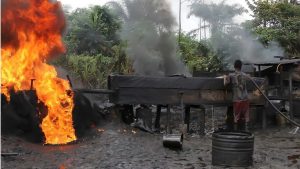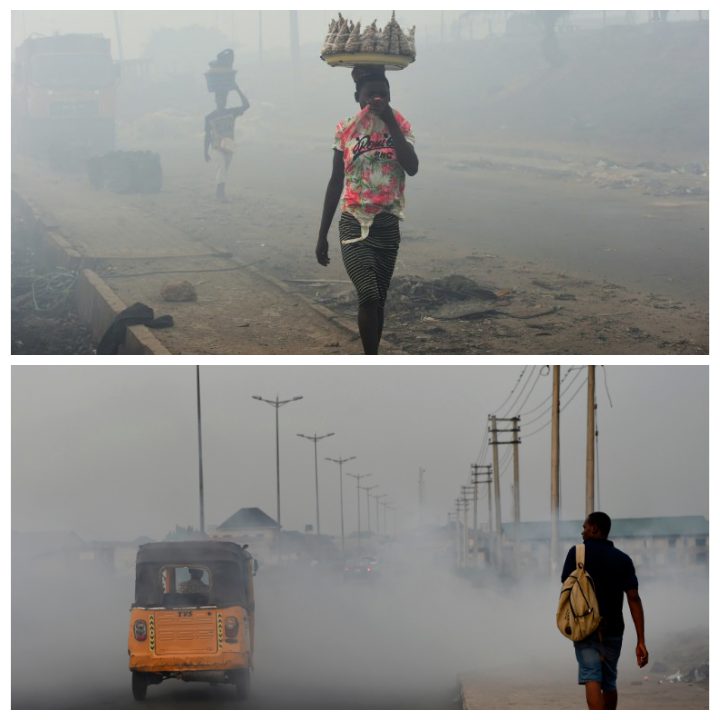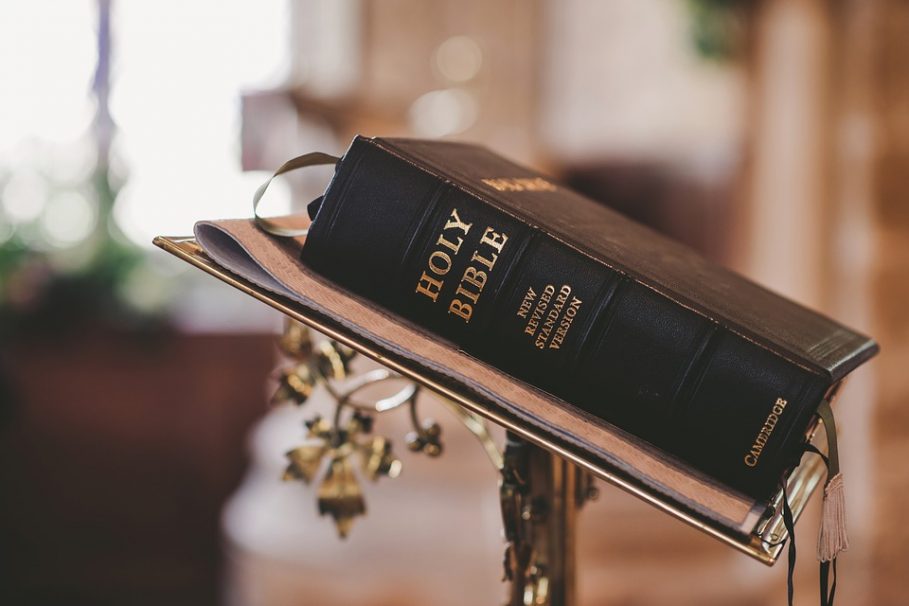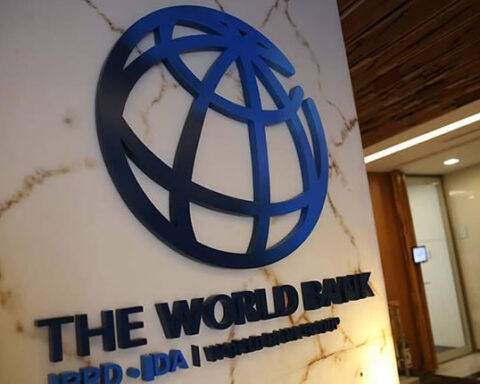Since 2014, the problem of soot in Port Harcourt and elsewhere in Nigeria has increasingly been of great concern, turning the once supple Garden City into a smoke city.
The streets, people’s clothes and feet, bed sheets, and the nostrils bleed with soot, the black particles from incomplete burning of oil or coal. As of July 2021, AirVisual, an environmental body, slammed the air quality in Port Harcourt with a damning index of 152, far above the global standard of 0-50, with 51-100 seen as moderate. As a result, scientists have continued to report rising rates of toxicity in human tissues in Rivers State.
The story of environmental pollution in the Niger Delta is an ever-present deadly reality. The international resource watchdog, Stakeholder Democracy Network (SDN), says that Nigeria has some of the worst air pollution in the world. The Guardian of the UK also reports that “the air quality in cities like Port Harcourt, Aba, Onitsha and Kaduna has reached crisis levels of pollution in recent years.” In 2016, the WHO designated Onitsha as the world’s most polluted city. At the same time, the SDN observed that the levels of particulate matter (particles) in Port Harcourt and Lagos was 20% higher than in Delhi, India, the world’s most polluted capital city.
Join our WhatsApp ChannelSoot is so miniature (about 2.5 micrometre) and can penetrate the lungs and blood stream. It is one of the deadliest forms of air pollution, according to the US Environmental Protection Agency (EPA). Chemical substances in soot can cause cancer and respiratory problems. Between 2014 and 2018 alone, at least 22,077 people across the 23 LGAs in Rivers State had respiratory problems. Precious Ede, a climate scientist, reported a 30% spike in sicknesses and deaths 16 months from 2016 when the Port Harcourt soot started to elicit high levels of concern.
A BBC report in 2016 linked the soot to the destruction of the products of illegal refineries. That is, when products seized from illegal refineries are burned, soot shoots into the air. Shockingly, illegal refineries operate on such a scale that destroying their products causes such havoc. Yet, as of 2022, Governor Nyesom Wike was still calling on the relevant federal authorities to arrest and prosecute illegal refiners. The governor has made such calls repeatedly.
Recall that in 2018, Governor Wike had formally approached the federal government to request it to use alternative measures to destroy illegal refineries instead of burning refined products. Represented by his chief of staff at a dinner and an award night for officers of the Rivers State Police Command, the governor refreshed the call, January 2022.
Amidst the jubilatory mood during the occasion, the governor’s representative, Chukwuemeka Woke, conveyed the governor’s commendation to the Commissioner of Police in the State, Mr Friday Eboka for the rising peace and reducing crime level since he assumed office. Surprisingly, one of the foremost acts of criminality and causes of mayhem in the state has begged for attention since 2014.
We view some skepticism, the blame put solely on illegal refineries in recent attempts to address the appearance of soot in Port Harcourt. It is curious that the illegal refineries in the creeks can be destroyed, yet the well-known politicians who own the barges that carry illegal crude are not touched. And what about the other causes of environmental pollution in the Niger delta such as gas flaring by oil companies? A team of experts set up in 2018 by Governor Wike to investigate the causes of the soot put illegal refineries and gas flaring as the two most important culprits. Fertilizer plants, petrochemical industries, asphalt plants and even legal refineries were other major causes. Also cited were meat roasting, tyre burning, refuse burning and vehicular emissions.
Prime Business Africa believes that gas flaring has to be visited again, and viewed with as much angst as illegal refining. Civil society action needs to be refreshed, including ongoing legal measures.
Since 2005, gas flaring has been illegal in Nigeria yet the country remains the second most notorious nation in the world for gas flaring, i.e., the burning of unwanted natural gas in oil wells. Nigeria is among seven countries that account for 65% of the world’s gas flaring. The country bellowed 1,252.26 trillion cubic feet of natural gas into the air between 2016 and 2020 according to the NNPC’s monthly oil and gas reports. After oil spillage, gas flaring is said to be the second most destructive environmental pollutant, and the country has demonstrated an enormous lack of political will to get the oil companies to stop it for obvious reasons.
We believe that since it is easier for the security agencies to arrest illegal refiners and destroy their business, it might also be more reasonable to do something else with them. With at least five million Nigerian youths out of job, illegal refining, with its clear lucrative nature, will always be a high temptation. As suggested by some experts, these lads can somehow be trained to improve on their refining capacity instead of quenching it. Unfortunately, and surprisingly too, Nigeria has imported refined petroleum products for over 20 years now. The country persecutes its own people who show some capacity in doing something that can be better harnessed to solve one of its most nagging problems, and in fact, the greatest shame of the modern era.
We encourage the federal government to reinvigorate its modular refineries plan that seems to have lost steam. What it costs Nigeria to import refined fuel in 30 days can build 10 modular refineries, says Professor Godwin Igwebueze, pioneer director of the Centre for Gas, Refining & Petrochemicals, Institute of Petroleum Studies, University of Port Harcourt. Prof. Igwebueze also hyped the capacity of universities to train local refiners, a way to obviate the recurrent social tension caused by continual government plans to remove fuel subsidy, which costs the country a mammoth N3.6 billion annually.
Remarkably, The Guardian of the UK reported in 2020 that the “Black market fuel made from stolen oil in rudimentary “bush” refineries hidden deep in the creeks and swamps of the Niger delta is less polluting than the highly toxic diesel and petrol that Europe exports to Nigeria.” Up to two million barrels of crude are extracted and exported from Nigeria daily but never refined in Nigeria because the country’s four refineries are bad. Since May 2019, no drop of oil has been refined in Nigeria, leading to N2.5 trillion being spent on petrol importation in 13 months (January 2019-February 2020), about a quarter of the national budget for 2020.

We recall with interest the kind of horse-trading that characterized the turn-around maintenance of the four refineries since 1999, the tortuous journey of the Petroleum Industry Bill, the touted sale of Nigeria’s ailing four refineries, the establishment of modular refineries and the granting of importation licenses to local refineries outside the Niger Delta region. We believe that only a government that places national interest first can see simple reasons beyond unnecessary politicking to do the right things.














![Gender Activism An Economic Necessity In Africa [PBA Editorial]](https://www.primebusiness.africa/wp-content/uploads/2023/11/vaw-480x384.png)

